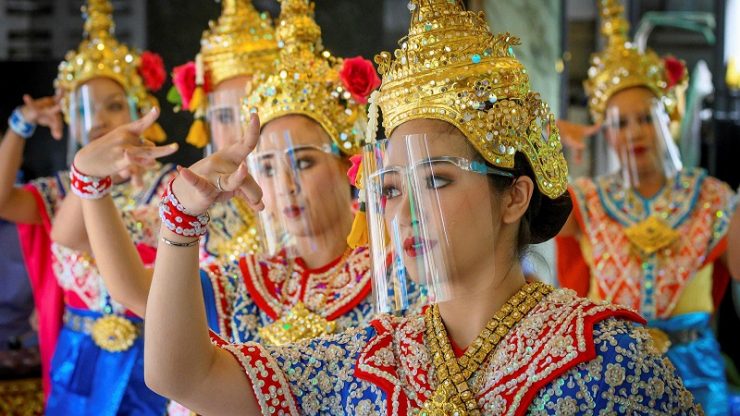DURING the pandemic, the latest rules for traveling to Thailand, here are 2 options to choose from. Starting January 11, in addition to Phuket, vaccinated travelers can visit three more destinations in Thailand under the Sandbox program, including the provinces of Krabi and Phang-nga, as well as the islands of Surat Thani (but only the resorts of Koh Samui, Ko Pha-ngan and Ko Tao).
However, according to the Tourism Authority of Thailand (TAT), the quarantine-free Test-and-Go scheme, which was suspended on December 21, has now been suspended indefinitely. According to the Bangkok Post, about 200,000 travelers had signed up to visit Thailand through the national Test-and-Go and Sandbox programs, and about 110,000 of them had arrived before the two schemes were phased out in December.
The remaining 90,000 are still allowed to travel to Thailand without quarantine. However, for anyone who has just signed up to visit Thailand, there are 2 options to choose from.
1. Sandbox Program
The Sandbox program allows vaccinated foreign tourists from any country to visit Thailand via Phuket, Krabi, Phang-nga and the resorts of Ko Samui, Ko Pha-ngan and Ko Tao in Surat Thani.
To be eligible for the program, travelers must have proof of vaccination, take a PCR test before traveling to Thailand, take out COVID-19 insurance with a minimum coverage of US$50,000, and apply for a Thailand Pass through the Thai at the Embassy.
Travelers in the Sandbox program are required to stay at SHA+ Hotels at their Sandbox destinations (government-approved hotels that meet enhanced health and safety standards) and prepay for seven nights’ accommodation. If travelers spend at least seven days at their destination, they are then free to travel throughout Thailand.
Travelers will not be confined to their hotel rooms, they will be free to move around their resort and visit beaches, restaurants and other amenities, but they will not be allowed to leave their Sandbox destination until they have completed a seven-day stay.
2. Alternative Quarantine Program
International visitors from any country can also visit Thailand from 11 January under the Alternative Quarantine program, regardless of vaccination status.
However, they must apply for a Thailand Pass and travelers over the age of six must take a negative pre-departure COVID-19 test no later than 72 hours before travelling.
They must also have an insurance policy with coverage of at least US$50,000 and pay for their quarantine accommodation before traveling to Thailand, as well as their PCR test.
Travelers fully vaccinated with the approved dose (or at least one dose for travelers under 18 years of age) must be quarantined for seven days and undergo two PCR tests. Travelers who are not fully vaccinated must be quarantined for 10 days and undergo three PCR tests. After the quarantine period ends, travelers will be free to travel around Thailand.
In November, the Thai government nearly approved quarantine-free entry for tourists from 63 countries under the Test-and-Go programme. The scheme was suspended on December 21 as Omicron cases escalated, before being suspended indefinitely on January 7.
However, applicants who apply to the program and receive their Thailand Pass QR code before 22 December are still allowed to travel to Thailand until 15 January. The Test-and-Go package requires fully vaccinated arrivals to have COVID-19 insurance of at least US$50,000, and show proof of a negative COVID-19 PCR test before they depart for Thailand.
Travelers are also required to undergo a second COVID-19 test upon arrival and must spend their first night in a government-approved quarantine facility pending the results (COVID-19 test results can take approximately 24 hours to process).
But once the result is negative, tourists will be free to move and travel around Thailand like any Thai citizen would. Travelers are also required to download the MorChana app.
Thailand’s state of emergency
The national state of emergency remains in effect until January 31, 2022 amid the arrival of the Omicron variant. Thailand continues to categorize provinces into dark red, red and orange zones based on their COVID-19 risk, with restrictions varying between zones.
On January 7, the government raised the COVID-19 alert to four that would allow the government to close high-risk areas or restrict domestic travel and public gatherings, according to Reuters. Face masks are mandatory throughout Thailand and must be worn in indoor and outdoor public places and on public transport. [sources/photo special]
















